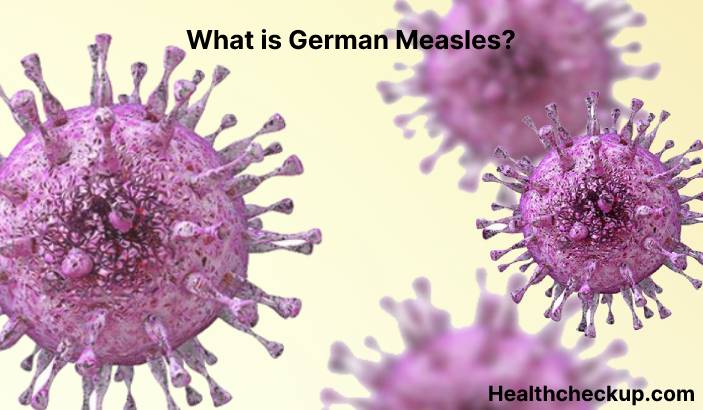German measles, also known as rubella, is a viral infection that is characterized by a rash and fever. German measles is typically a mild, self-limited illness, but it can be serious, particularly for pregnant women and their fetuses. German measles is caused by the rubella virus and is transmitted through respiratory secretions, such as saliva or mucus, when an infected person talks, coughs, or sneezes.
Symptoms of German measles
Symptoms of German measles appear two to three weeks after infection and include:
- Rash
- Fever
- Swollen lymph nodes
- Sore throat
- Headache
- Conjunctivitis (pink eye)
- Muscles aches
German measles is typically a mild illness, but it can lead to serious complications, such as:
- Congenital rubella syndrome (CRS), which occurs when a pregnant woman is infected with the rubella virus and passes the infection to the fetus. CRS can cause birth defects, including deafness, blindness, and heart defects.
Diagnosis of German measles
German measles is typically diagnosed based on the presence of characteristic symptoms and a history of exposure to an infected person. Laboratory testing, such as a rubella-specific antibody test, is also used to confirm the diagnosis.
Treatment of German measles
There is no specific treatment for German measles. Treatment is generally supportive, including medications to reduce fever and relieve symptoms, such as acetaminophen or ibuprofen. In severe cases, hospitalization is necessary to provide supportive care.
Prevention of German measles
The best way to prevent German measles is to get vaccinated. The rubella vaccine is typically given as part of the measles, mumps, and rubella (MMR) vaccine. The MMR vaccine is recommended for all children and adults who are not immune to measles, mumps, and rubella.
It is also important to practice good hygiene, such as washing hands regularly and avoiding close contact with individuals who are experiencing symptoms of German measles. If you are pregnant and have not been vaccinated against rubella, it is important to avoid contact with individuals who have been exposed to the virus.
If you think that you have German measles, it is important to seek medical attention as soon as possible. Early diagnosis and treatment helps to prevent complications, such as CRS. Your healthcare provider will work with you to develop a treatment plan.








